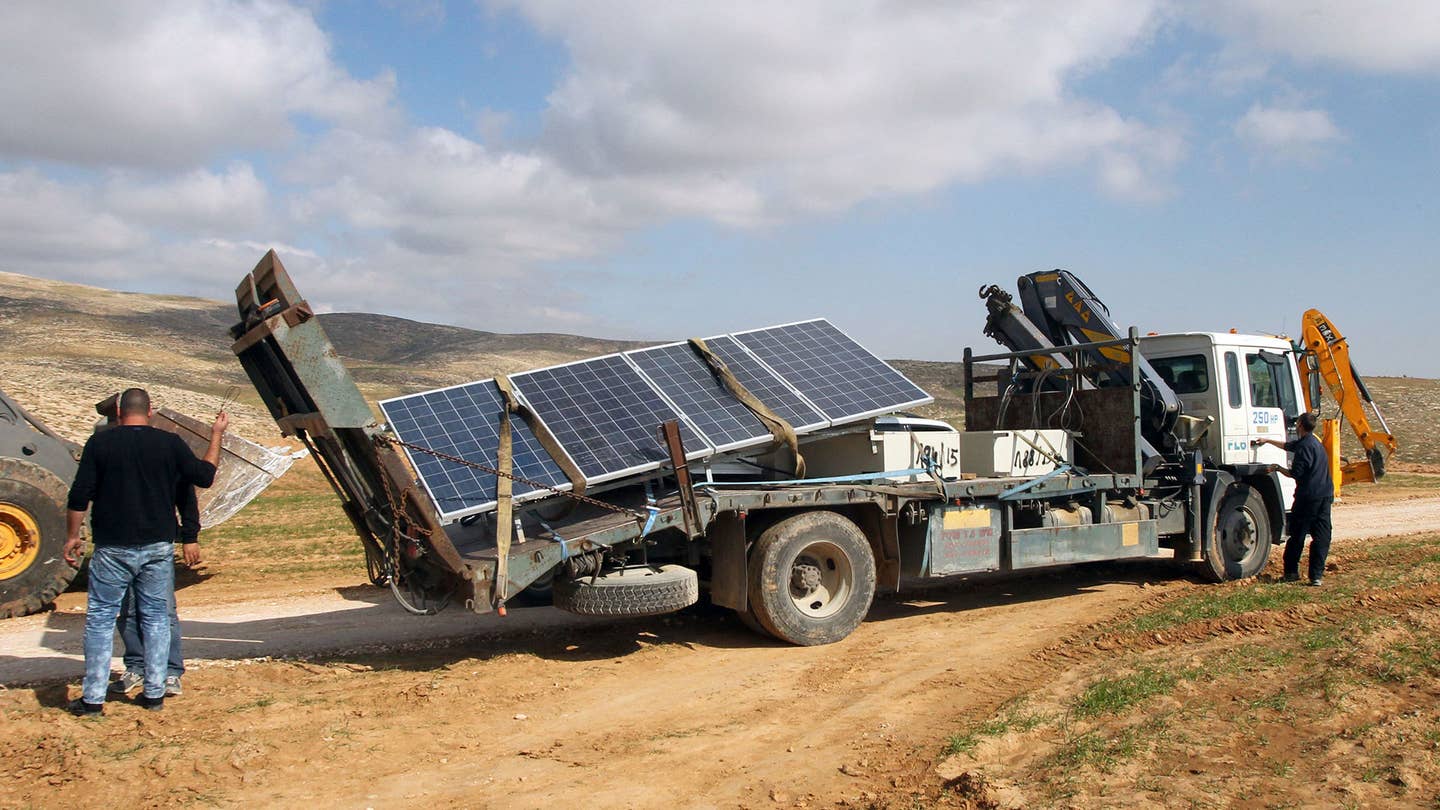France To Pave Roads With Solar Panels
New “Wattway” could provide enough power for a nation.

Last week, the French government announced plans for what it’s calling the “Wattway”—621 miles of road that, over the next five years, will be paved with solar cells. Come 2021, five million French people could be depending on their roads not just for transportation, but to keep keep the lights on, too.
The key to this bold plan? A new type of solar panel, developed by France’s National Institute of Solar Energy in partnership with roadmaker Colas. Together, they’ve created a solar panel tough enough to stand up to the constant pounding of cars and trucks. Yet, at ¼-inch thick, it’s thin and light enough to be papered over existing street surfaces.
Like many solar cells, the absorbing portion of the Wattway’s surface panels is made from a polycrystalline silicon film; this is then covered in resin, making the panels stronger and less slippery, while simultaneously weatherproofing them. (It’s even capable of withstanding the scraping blade of a snowplow, the manufacturer says.) The result is a solar panel that is, effectively, as tough as any other roadway surface. Colas CEO Hervé Le Bouc tells Les Echos that, during testing, the panels remained secure even after one million vehicles drove over them—the equivalent of two decade’s worth of use.
According to Colas, 215 square feet of Wattway could generate enough power to light up an entire French home. If their numbers are correct, the roughly 621,000 miles of roadway in France could provide enough power for five billion people.
Of course, that’s assuming everything works according to plan—which many energy experts aren’t so sure about. Even assuming the manufacturer’s assurances that the panels are as grippy as a regular road hold true, asphalt, concrete, and other traditional roadbed materials will almost certainly always be cheaper than the Wattway’s hardened photovoltaics. And even if they weren’t, rooftop panels and solar farms will always be more efficient—what with the advantage of, y’know, not being constantly blocked by cars and trucks.
